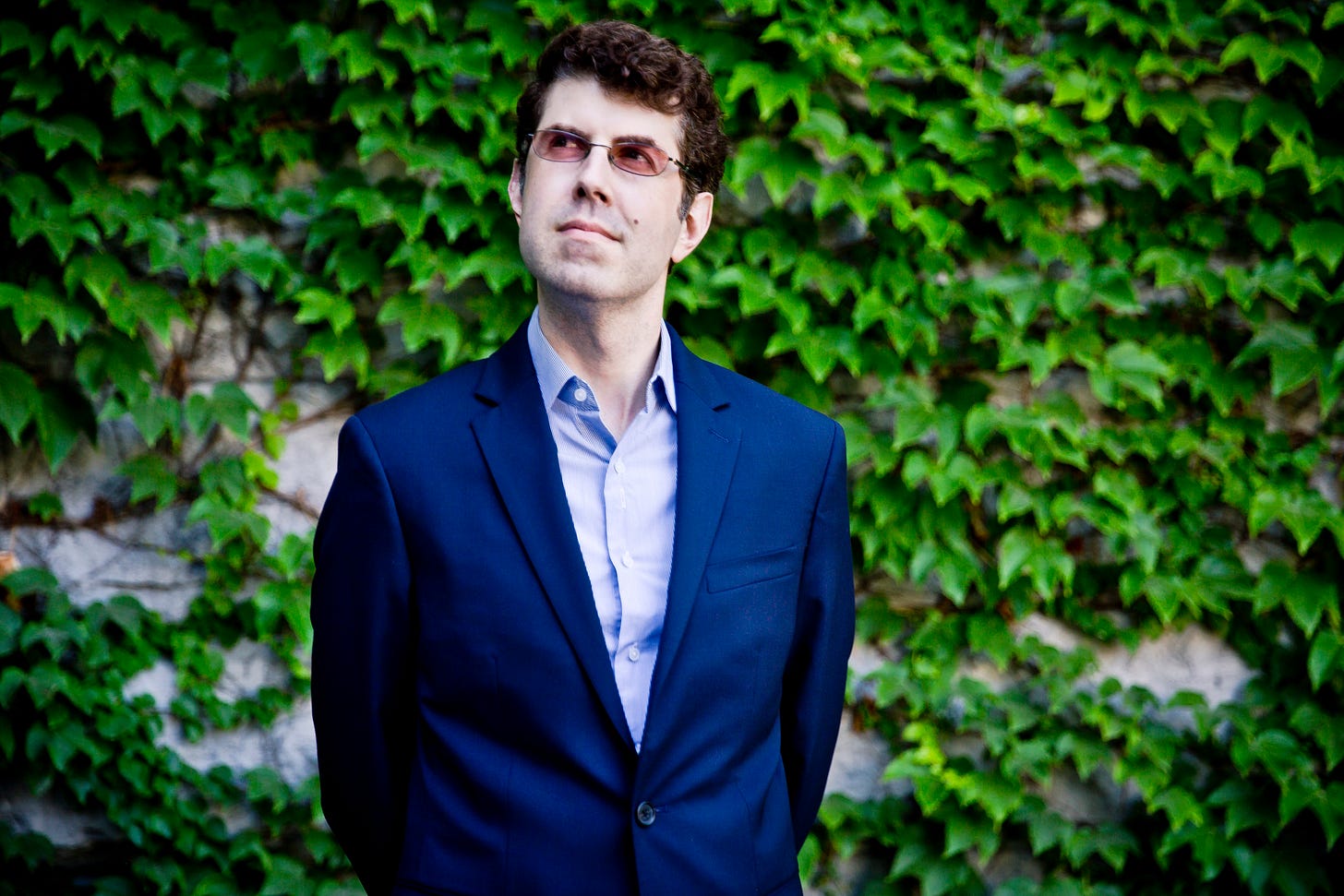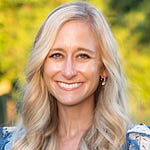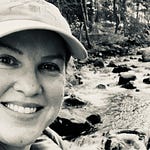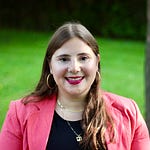The first part of this episode is available to all listeners. To hear the whole thing, become a paid subscriber here.
Science communicator Jonathan Jarry joins us to discuss his history of turning to alternative cures for chronic pain, how he came to be skeptical of the wellness industry, the problems with science journalism, why you probably don’t have a leaky gut (despite what many influencers and wellness practitioners claim), the critical article about “leaky gut syndrome” that resulted in death threats, and lots more.
Jonathan Jarry is a science communicator with McGill University’s Office for Science and Society (OSS), dedicated to separating sense from nonsense on the scientific stage. He has a Master’s degree in molecular biology and he brings his experience in cancer research, human genetics, rehabilitation research, and forensic biology to the work he does for the public. With cardiologist Dr. Christopher Labos, he co-hosts the award-winning medical podcast The Body of Evidence, which aims to contextualize findings in the realm of health research and answer the public's most pressing questions about the biomedical sciences while also being funny and entertaining. He talks about science most Fridays on CTV Montreal News and is regularly interviewed in both English- and French-language media. Learn more about his work at jonathanjarry.com.
Resources and References
Christy’s second book, The Wellness Trap: Break Free from Diet Culture, Disinformation, and Dubious Diagnoses and Find Your True Well-Being
Subscribe on Substack for extended interviews and more
The Body of Evidence podcast
Jonathan on Bluesky
Transcript
Disclaimer: The below transcription is primarily rendered by AI, so errors may have occurred. The original audio file is available above.
Christy Harrison: So, Jonathan, welcome to the show. I'm so excited to talk with you today.
Jonathan Jarry: Well, thank you for the invitation.
Christy Harrison: I'm really excited to talk because you're a science communicator and a skeptic of the wellness industry, and I am, too, and I really love your work. So I think we can talk about a lot of that. We both especially share an interest in looking at the hype around gut health and leaky gut. And so I want to kind of dive into that today. But to start, I'd love to have you tell me a little bit about your background and how you came to do the work that you do.
Jonathan Jarry: So, I'm a scientist by training. I got a bachelor's degree in biochemistry. I did a master's degree in molecular biology. I was really interested in forensics, specifically forensic biology. So I did end up working very briefly in forensic biology, not liking it, always seeking that sort of direct application of science to the public, which I thought I would get with forensics, but that was not the case.
Christy Harrison: This is naive of me, but is this like working in a crime lab or...
Jonathan Jarry: Yes, that sort of thing. I mean, basically it boils down to human identification in the case of forensic biology. And so, yes, a lot of crime labs will basically run DNA samples from crime scenes against reference samples. I was not working in a crime lab. I was working for the US armed forces. They have this massive DNA identification laboratory where they want to bring all of their soldiers home. And so soldiers that don't make it home, they will send out teams to basically unearth bones, crash sites, and they will bring those back. And then you will isolate mitochondrial DNA from those bones and check them against maternal relatives to see if there's a match. So that was the kind of work that I was doing.
And I've also worked in clinical laboratories. So basically sort of diagnosing people with various forms of cancer or trying to figure out if they have a certain genetic variation that will favor one treatment over, over another. So I've done all this kind of work, and I did start doing science communication in my spare time. It must have been 10/12 years ago now, sort of blogging and doing videos and podcasts, and eventually sort of came across this office that we have at McGill University, the Office for Science and Society, or OSS. And that is exactly the kind of work that they do. And so I ended up working for them first part time and then full time. And our whole goal is to disentangle this mess that is out there of good science, of bad science, of things that masquerade as science, and that end up confusing the public.
Christy Harrison: Yeah. Do you have any background or any experience with wellness misinformation yourself or other health concerns that might have led you to some of these treatments and modalities that you're now skeptical of?
Jonathan Jarry: Absolutely. I mean, I saw a chiropractor for quite a bit. I saw an acupuncturist as well, because I had some chronic pain issues. And the chiropractor was a funny one because she would have me lay down on a table for a bit before the actual chiropractic intervention, and she would put this hot compress on my neck and shoulders. And that is something that I know does work, I mean, temporarily, to relieve some of that pain. And at some point, I sort of caught on to the fact that this is the part that was really helping me, not the actual chiropractic work. And so I stopped going, because, of course, in chiropractic, they want you to keep coming back from maintenance treatments. And so I stopped coming.
And she called me one day, basically asking me, why have you stopped coming to see me? I was trying to be diplomatic and not have to explain myself, but here she is calling me. And so I explained to her what was happening, and she said, "Well, if it was as simple as that, I would just set up a bunch of tables and have all my patients just lie there with hot compresses on their bodies. I would save myself a lot of effort." And I said, "Well, maybe that's what you should do." And that was it. That's what happens.
The same thing with the acupuncturist, where it wasn't really working. And we tried electroacupuncture, which is not really acupuncture. We tried dry needling, we tried laser acupuncture, which I didn't know was a thing, but it is a thing.
Christy Harrison: I did that for fertility. When I was doing IVF, I was already super skeptical of everything and was like, I don't think this probably works. But I had five minutes before the appointment to decide if I wanted to do this and did a quick PubMed search, and I was like, well, there's something there. I don't know. And I ended up doing it. Now, having looked into it, I have a daughter. IVF worked for me. And yet now I look back at it, and I think, yeah, that was sort of a waste.
Jonathan Jarry: But, your frame of mind is always, well, what do I have to lose, right? What if it works? And especially a lot of these interventions, they're non-invasive. I mean, not dry needling, but laser acupuncture certainly is non-invasive. And it sounds like the risks are very low. And so you just go, well, let's try this. Who knows? And it got to the point where the acupuncturist was saying, "Well, if you really want this to work, you should also try taking some traditional Chinese herbs." And he was giving me a list of herbs that I needed to go and get from Chinatown, and I started to look into them and seeing that there was a lot of reports of liver toxicity associated with taking these traditional Chinese herbs.
And so I consulted with a medical doctor friend of mine at the time who said, please come and see me, and who talked some sense into me, because I was basically, I started off doing this thing that seemed to be risk free, and then I was slowly rolling down this rabbit hole, and it was becoming riskier and riskier. But once you have the trust of one of these practitioners, and especially since he knew that I was a scientist, he would say, "Well, there are papers about this. Let me send you some papers about this."
And at first, maybe I was just glancing at those papers. I wasn't as well trained as I am now to assess the worth of these papers and to contextualize their findings. And so it was played to my desire for there to be scientific evidence into these things, because there are. If you go looking for papers, you will find papers. But that does not mean that these interventions have been shown to be effective.
Christy Harrison: Right. Because not all papers are created equal. And not all science is good science. And you have to sort of dig in and really look at the methodology and what they're actually claiming to determine whether that's true. It's interesting, you mentioned that you were already a scientist at that point, but you weren't quite as well versed in critically reading and assessing science. I think that's common. I know for me, I was a science journalist and reported on nutrition and health and food, and then went back to school to become a dietitian and got my masters in public health as well. And it was only during the masters of public health portion, although I think I had like a crossover class that I had to take for both, but I had to take a research methods class.
And that was the first time I really was exposed to critical assessment of studies and looking at the quality of evidence and that not all evidence is created equal. And in my history as a reporter, I would just be like, well, there's science, and here's what the abstract says. I didn't always have access to the full study. I would interview the experts and interview someone who had worked on the study or whatever, and maybe quote from a university press release. And I think that's what so many journalists do, especially who are not hardcore science journalists, but more fell into it through other avenues, like I did through food and nutrition reporting. And it's interesting just to hear that someone who's actually a scientist, a working scientist, also had that same experience, that you were not trained on how to do that sort of critical assessment. Or maybe you were trained, but you didn't have as much experience in doing it as deeply.
Jonathan Jarry: Yeah, I had done research as part of my masters, and I would go on to do three years of a PhD program. And it really takes time because you become hyper specialized. You look at papers in your very, very narrow area of research. If you're interested in a particular protein, okay, so what have other people publish about this particular protein? And you can sort of miss the forest for the trees and lack the sort of generalizable skill to assess the worth of a paper or to think in terms of the pyramid of evidence, which is very flawed. But that gives you an idea of where observational studies fall versus experimental studies and the fact that randomized clinical trials, when they are well done, they are more reliable than case control studies. And so there are different types of studies that you can do, and they have their advantages or disadvantages, and some of them are more likely to give you a reliable answer and than others.
And those are things that you may not learn about when you're doing laboratory work. But what really helped me was doing those years in the PhD program, doing this kind of research, seeing other people in my lab and in other labs do research and then have some issues and problems with, for example, data analysis and not being given the right tools to analyze this huge mountain of data that they were generating and then being told, well, figure it out.
And that is kind of how bad science happens. There's no malice there. Sometimes it's just incompetence. You don't have the right kind of support and you end up finding things because you don't really know how to deal with this. And so you find false positives, and false positives are very sexy and so you get them published and then nobody can reproduce them, but you're not going to publish that because that's a negative result. That's not sexy. And so, I spent some time trying to reproduce results that have been published in the literature and not being able to, and we just moved on. And who knows how many other labs were also spending time trying to reproduce these results and were also getting negative results. But at the end of the day, what is left in the literature is that early positive finding. But it turns out to be a false positive. That happens a lot in scientific research.
Christy Harrison: Yeah, that's definitely my hunch too. When reading papers about nutrition and diet, I do a lot of deep dives into diet claims and other wellness claims, and it seems like this stuff is just so early stage and gets picked up by the press and hyped up and turns into its own whole thing, and yet the actual evidence behind it is so scant. And so when people try to reproduce it from different labs or in different populations, it just doesn't hold up.
Jonathan Jarry: Yeah, and diet, nutrition research in general, it's very, very hard to do because you can hardly force people to follow a strict diet for a long period of time. You would have to have them living in the lab and serving them meals and controlling what they eat. Some people will do that for very, very short periods of time, but you can't do that for years and for decades. And so you rely on the choices that people make and they may be different choices, and that may be what really explains the differences in disease outcomes that you see in those groups.
And often this research, it relies on self report questionnaires, food questioners, where people are asked, you know, what did you have for breakfast, you know, a week ago or how often did you eat eggs in the last six months? And I would have a very hard time answering those questions. And I have a fairly stable diet. But, at some point it's very hard to remember these things and maybe you want to please the experimenters and you know that you've been cheating and you're going to not disclose, and so it will alter the results in the end. And so a lot of this research is based on these food questionnaires, which are highly, highly questionable. So it's very hard to study nutrition and to get good, accurate, reproducible data.
Christy Harrison: Yeah, completely. I've seen some studies, even, that ask people what they ate decades ago. There was evidence on acne and dairy I looked into, and it was like self reported questionnaires for women in their thirties to fifties. One study, I think maybe a couple studies did this that was like older adults or middle aged adults asking them what they ate in their teens, like, how often did you drink milk? How often did you eat cheese when you were 15 years old or whatever?
Jonathan Jarry: Right. I've seen these long studies that are done over the course of decades, which looks very impressive, and then the results is, oh, we found this association. But when you actually dig into the study, they asked this question, like back in the 1980s, once, how often do you eat muffins? And then the person answered in 1985, and now there's this health outcome in 2024,. They're saying, aha, we find an association between eating muffins and getting stomach cancer. And it sounds impressive because, oh, this is part of a cohort that we've been following for decades. So it sounds very impressive. But actually they only administered the food questionnaire once and it was decades ago. I have seen this like this. Of course it leads to headlines because it's sexy, either because it's enticing or because it's very scary and it's just an easy headline to write, but it's complete nonsense.
Christy Harrison: Yeah, that is so wild and just really speaks to the need for critical thinking about science and actually unpacking research among journalists and other people who are disseminating this information. But of course, there's so many systemic issues with that because the people who are doing that are often underpaid and overworked and don't have the time to actually go digging in, nor do they have the training. And I think there's a lot of movement within fields in journalism, so you don't necessarily need any sort of scientific background to just be a general reporter. You might need English or composition kind of rhetoric training to be writing. But you probably don't need science for a lot of the reporting you could do, and then you might stumble into something that actually requires a lot more scientific knowledge and not have that training.
Jonathan Jarry: Yeah, and we've lost a lot of expert science journalists over the years because they were seen as too specialized and there were cutbacks. And so now we are left mostly with generalists who are doing their best but who have to do the job of two and a half employees. They're running around. They don't have the proper background, and they rely on their Rolodex, their virtual Rolodex, to talk to experts about these things. And so you get the kinds of articles that are sort of very standard in health reporting, which is you begin with a person who has been diagnosed with this disease, for example. So you tell the story of Maria, who woke up one day and she felt a lump, and then you've got the researchers who found something new, and they just published, and maybe he's going to cure this disease. And then you go to a scientist who was not part of the study who says, well, yeah, it looks interesting, but, more studies are needed, and you come back to Maria at the end. That is sort of the classic way to structure a health story.
But the problem is that that study might have been done in mice, and, unfortunately, it's unlikely to pay off in humans at all. But even if it does, it will take decades. But you wouldn't know that from reading that particular write up. But it's a kind of story that journalists are trained to write because they see these stories as human interest stories, but they're not. They are science stories. And so they are framed poorly because they want to make sure that people will read them, which I understand, but unfortunately, it gives credence to these stories, and it adds this human element, which makes it more believable. And you feel for the person who's being spotlit in these particular articles when, in fact, the study itself should never have been put in print because it is unremarkable. It was done in an animal model. It was done in cells, in culture flasks. And its relevance is highly questionable.
Christy Harrison: That's such a great point. And I think that human interest piece is really challenging because I'm still a journalist. I still do writing and reporting and books and stuff. And having a story to bring people in is really helpful in a lot of ways to give it some sort of emotional connection to give people an example of what you're talking about. So it's not just a bunch of dry science. And choosing that story, I think, is a huge responsibility. It could just be anecdotal evidence that doesn't match the data, or you could try to find someone whose experience does match the data, but then you're kind of cherry picking, and it's a really complicated thing to report well, I think on science in a way that has that human element or emotional connection for readers, but also is accurate and true to the data.
Jonathan Jarry: It is. If journalists had better access to the scientific literature and if they had more time, it might be easier for them to find better stories to tell about science. I'm writing right now about why measles is so contagious. And I stumbled upon probably this little red report from Australian health authorities about a case that happened in 2010. This little girl from Malawi who had measles and who traveled to Australia and how she infected a few people on that plane, including a guy who had been sitting about 16 rows away from her on the plane and he caught measles from her. That's how contagious it is. That is a fascinating story. That is true, and that does exemplify the contagiousness of the disease. But you have to sort of dig into the scientific literature on this to find these things.
And sometimes the better story is to interview the people in the lab and how they came across their findings, the whole process. Science is a bit of a mystery that you're trying to solve and sort of talking to the people in the lab. "Okay, so you found this, and then what did you think it was? Okay, so then what did you do? Okay, you tested this other thing. Oh, now you find this thing. Oh, that's kind of weird." That can also be a very interesting, almost a murder mystery type of story that you can tell about this that is also accurate. But, yeah, too often the default positions is, "Let's find somebody who has this disease that maybe has been cured now because of this new study that was done in mice."
Again, because this lack of time, a lot of journalists, they fall back into these patterns, into these tried and true models of how are we going to tell this story? And it is unfortunate because it does end up generating a lot of undue hype over specific interventions or ideas, and then these ideas don't pan out in the end. And so you're always stuck in the cycle of hyping up something, and then it goes away. Then you're hyping up the next thing and it goes away. We see this in wellness all the time. Every year there are these new wellness trends that emerge and people can get onto that and then they don't work for them. But don't worry, because there's another one just around the corner, and it's going to be sold to you by the same journalists who will write the same kinds of pieces, about the same kinds of anecdotes and testimonials, and you just keep riding the train from one station to the next and it just never ends.
Christy Harrison: Yeah, that's so interesting. And I think it's probably a good question for people to ask themselves when they're reading journalism about health or just any sort of reports online or whatever, anything trendy is like, where will this be in five years? And what was the thing that was the equivalent of those five years ago, and how did that pan out? It all sort of gets memory holed at some point I think.
Jonathan Jarry: It does. I think it's useful to think in terms of prior plausibility, in terms of bayesian statistics, if I want to get very, very detailed here. This idea of like, okay, so this looks promising on its own, but yes, let's contextualize this. Let's think about all these other things that we've seen that look like this. And have they panned out or not? Well, no, they haven't. And why is that? Well, it's because science is hard and finding things that are going to be effective in the human body but also have a tolerable risk profile, that is difficult. And it's a lot easier to find some things in a bunch of cells that are growing together in the lab. It's also relatively easy to find things that seem to work in mice and rats and hamsters, but it's a lot harder to do this in human beings.
That is why that whole chain of events, from in vitro studies to animal studies to clinical trials to finally getting, for example, a drug approved, that is a very daunting gauntlet. It's very hard for a drug to make it all the way through. With dietary supplements, it's a lot easier because in the United States they are not regulated, so anybody can sell anything, whereas with pharmaceuticals, there is this gauntlet through which the drug needs to survive. And it's very, very hard. But that is how you test something to see if it really works.
Christy Harrison: Yeah. And I think about even, I've been looking at diet drugs recently, and this whole hype and craze for GLP-1s as diet drugs, as weight loss drugs, and the hype cycle for all the past weight loss drugs that were hailed as miracles is so huge. And such a runaway train of hype beyond what is actually known about the drug. And oftentimes, even after getting through that gauntlet of regulation in the pharmaceutical industry, then drugs still are pulled from the market eventually because side effects emerge down the line that were thought to be rare but serious. But then when tons of people take it, it turns out to be actually, a lot of people are having these serious side effects.
Jonathan Jarry: Yeah, it is an imperfect system in the same way that peer review is an imperfect system. When a scientific article is submitted to a journal for publication, it is usually sent out to a few other researchers in the field, who will review it and provide comments anonymously. That is a good system to have, but it is imperfect. There's still a lot of junk that gets published. All of these systems that we have, they are imperfect, but they are necessary and they should be improved. But what we often see in wellness is a disregard for these systems, is a bypassing of these systems, which is how you end up with kind of anything, any kind of junk out there can be sold. And it has a beautiful little label and wonderful testimonials, but it has not gone through this imperfect, though necessary system of quality control.
Christy Harrison: So I think that's really good context for our discussion today that I want to dive into about leaky gut. And you wrote a piece recently that I really liked called You Probably Don't Have a Leaky Gut. And in it, you write that, "There's a kernel of truth to this leaky gut theory, but what you're likely to see online is it's warped, outsized funhouse mirror twin," which I love. Can you explain what the kernel of truth is here and how it gets distorted into misinformation?
Jonathan Jarry: Sure. So, obviously, the lining of our intestines is permeable to a certain extent. This is how food works. This is how we need to break down the food that we eat into very small components, and some of these components will make it through the lining of our intestines and will get absorbed into the blood. So there has to be some kind of permeability there, otherwise we would all die. And in some people, there is what has been termed a sort of an altered intestinal permeability or an abnormal intestinal barrier function. And this is something that has been seen by scientists in things like celiac disease, people who have infections of their intestines, people who have HIV AIDS, a little bit with IBS, with irritable bowel syndrome to a lesser extent.
But those characteristics is this kind of abnormal barrier function. It seems to be more of a consequence of the disease and not a cause of the disease. So there is a kernel of truth there. But what you see now is people that have taken this idea and they have run with it, and they are alleging that a lot of people have a completely leaky gut that allows all kinds of toxins that we get from the modern food that we eat through and into our bloodstream. It might be foods that are toxic. It might be foods that trigger inflammation. It might be fluoride in the water. It might be chronic stress. It might be GMO's.
Whatever the bugaboo is, it causes leaky gut. And leaky gut itself is used as an explanation for basically every disease you can think of. It apparently causes Parkinson's disease and cancer and multiple sclerosis and allergies and autism. Like, everything you don't like is caused by this leaky gut. And that is something that we see a lot in this kind of alternative medicine space, which is the one true cause of all diseases. And, of course, they have the one cure all that can apply to everyone.
Christy Harrison: Yeah, this one true cause, I feel like it's recycled again and again, talking about how things get sort of hyped up and then memory hold. I feel like there's always sort of a new true cause that keeps going through that cycle in wellness culture. And leaky gut is kind of a recent one that's having its moment. But it'll be interesting to see what happens with this in five or ten years, and then if it pops back up in 20 years, as some of these things do, too.
Jonathan Jarry: Yeah. You look at chiropractic, and for them, it is chiropractic subluxations, which are not a thing. They don't exist. But apparently they cause every disease. In acupuncture, it's the blockage of Qi going through these fictional meridians that just don't exist. Everything, all of these things, they all have this one true cause of all diseases. And it is obviously seductive to people, right? Because it's a very simplistic view of disease, whereas in reality, when you look at the biomedical sciences, when you look at medicine, it is complicated. There are all kinds of causes of diseases.
There are symptoms that overlap from one condition to the other. And treatments are very imperfect. They have side effects. Almost every medical treatment has side effects. So what you get from wellness and from alternative medicine is this beautiful idea of, "It's very simple. It's this one thing that's bad. It's usually something to do with modernity. We need to go back to nature, and here's how you go back to nature, and it's a non-invasive, side effect free intervention that will bring you back closer to how things used to be." And that's very tempting when you're sick.
Christy Harrison: Yeah. It seems like leaky gut is the one true cause du jour, especially in functional medicine and naturopathy. They often seem to connect all symptoms or issues to the, quote unquote, leaky gut. Can you explain sort of why, if you know why, that is so popular in those spaces and sort of how people can protect themselves?
Jonathan Jarry: Well, I think a lot of it boils down to this sort of allergy to modernity and this idea that the modern world is full of toxins that are poorly defined, but that are causing all sorts of diseases. And this sort of this vision of the past as being much better than it used to be. This idea that things were so much better when I was growing up, and now, that I'm getting older, that I have all of these diseases inside of me and around me. Hmm. I wonder what's happening. Oh, it must be the modern world. It must be our food supply. It must be pharmaceuticals. It must be what's in the air, what's in the water.
And of course, there are very real things. We do see contamination of the food supply. We do see problems with people not having access to potable water. We see problems with the air being full of particles that are making us sick. Again, there is a kernel of truth there, but they will run with this idea that things now are worse than they used to be. And so we need to go back to nature. And that is something that, for some reason, is very appealing to the human brain. This idea that if something is natural, it is necessarily good for you and it is harm free because nature is good. But things that are man made things that we humans make, technology, synthetic stuff, artificial stuff, that is bad because we were not meant to have these things. And that is a very, very appealing idea.
And so much, if not all, of alternative medicine and wellness is built around this idea that basically, it has sort of religious overtones of like, "Well, we were kicked out of the Garden of Eden. We need to go back to the Garden of Eden." It's this idea of things used to be so much better in, in the before times, and we are responsible for the diseases that are around us, we have caused these things by leaning into technology and synthetics and artificial stuff. And so we need to go back.
And that brings with it this idea that health is a decision that you make. If you are unhealthy, it's because you are not making the right choices. And that is a very, it's a very harmful notion, because, of course, there are things about our health that are completely outside of our control. There are systemic issues that are making us sick. But in wellness, you very, very often see this blaming the victim mentality. "Oh, you're not well. Well, it's your fault. You're not doing enough. You're not eating well enough. You're not doing enough yoga. You're not treating your leaky gut. If you did all the things that I told you to do, you wouldn't be unhealthy. Look at me. I'm healthy now. I went through my own journey, my healing journey."
It's a personal responsibility, and that is, of course, antithetical to the concept of public health.
Christy Harrison: Yeah. That's so interesting. And it's so complicated, right? Because there are these systemic issues that are real. There are things like air pollution, water pollution that are harmful. There are things that are disrupting the food supply. There's real stuff that's happening. And I think it's scary, and it makes people on edge, and it makes people vulnerable, too, to this sort of back to nature argument and the false claims of pseudoscientists and wellness practitioners and all the rest, because they're taking this grain of truth that exists and these things that are happening in the world that are scary to people and giving this sort of easy explanation.
How do you think people should approach things if they come across some report about environmental pollution, for example, or something I spend a lot of time with, like food contamination and these reports about, heavy metals and chocolate or glyphosate and Cheerios or whatever it might be that create all this kind of fear mongering, and there's all this hype around it and all these media reports. How can people sort of think about these things in context and tease apart what is actually real and perhaps deserves a societal solution and our attention as consumers versus what is trumped up fear mongering?
Jonathan Jarry: It's a very hard question to answer, other than to say they need to find experts that have earned their trust, and they need to listen to what these experts have to say on these topics. And hopefully these experts are transparent about their thought process of, "Here is this new study. Okay, here's why I'm not worried. Here's what they did. Here's what they didn't do. Here's how they analyze their data. Here's the proper context for this." I think that you earn trust through transparency.
I mean, you can't be an expert in everything. An argument that I've heard that I've made before is that if a giant asteroid was headed to Earth, I would not go on the news and pretend to be an expert on what to do with this situation. I would try and find astrophysicists and astronomers and engineers, people who are qualified to comment on what can we do about this? What are the downsides of each intervention? Because I'm not an expert in this particular topic.
And so it is because of how complicated science is, we can't expect members of the public to become epidemiology experts and virology experts and nutrition experts. Some people on Twitter have apparently become experts in everything and the war in Ukraine, and they're experts in everything because they have chosen punditry as their favorite pastime. But for the average person, you can't be an expert at everything. So you have to find experts that you trust. And hopefully, these are not experts who are being paternalizing and saying, "I'm not worried about this. Just listen to me. I'm a doctor." But rather, they will explain why they are worried, why they are not worried. They will contextualize the findings of a particular study, which, again, is something that journalists can't easily do because they lack that context. They're not experts in the field in which they are reporting.
And so that's why you go to actual scientists who have been doing this for years, for decades, who can say, "Well, yes, this one study says this, but we have ten other studies that contradict it. And I think what might have happened here is XYZ." So that is my solution, is that unfortunately, there is this issue of distrust in institutions, and some of it is earned and some of it is not. But at the end of the day, you still need to trust people. When I see a lot of conspiracy theorists who say, "Oh, well, doctors are corrupt and the media is corrupt and governments are corrupt, and you can't trust any of them." They still have to trust people, and they end up trusting these alternative figures in each of these fields. And they listen to certain podcasters and they watch certain people on YouTube.
They are trusting others, because you have to trust other people. You have to decide, what am I going to eat today? What is risky, what is not risky? What do I do if I have cancer? I have to go see somebody. So you do need to trust me. You just have to figure out who is worthy of your trust.
Christy Harrison: Such a good point. And I think some of the people making critiques that are valid critiques in some ways that also get sort of extended and overblown in a lot of ways, too. But there are some valid critiques to be made of the conventional healthcare system of the pharmaceutical industry, et cetera. The person calling it out then somehow gets this unearned trust or this sort of halo around them for calling out the problems and also making up more problems, probably, than really existing.
But maybe we don't just lionize the messenger here. Maybe we say, okay, this person might have an important message, and maybe I'll dig into this and cross check it with other people who are experts and see what they have to say. But not just sort of give unearned trust to people who really just know how to manipulate the algorithm on social media, too. I think that's a big part of it as well, is they're good at communicating. They're good at using sort of the tools of technology to get their message out there and to be everywhere. But that doesn't mean they're necessarily trustworthy.
Jonathan Jarry: And they're good at sounding confident. That is a huge factor that will earn people's trust. If you sound like you really know what you're talking about, you will gain a following, and then you can use that same confidence to sell your audience on dietary supplements, because that is what so many of them do. Either it's their own brand or they have a sponsorship deal with particular supplement maker. But yes, they will sell you supplements. So they will scare you about a particular situation. They will say, I have the answer, and the answer is give me money.
Christy Harrison: Yeah. I always think about the term confidence man. "Conman" comes from confidence man. And it's someone who earns your confidence or who inspires confidence in order to sort of take advantage of people.
Jonathan Jarry: Yeah. I saw this in the early days of the pandemic. There were people who were very confident in their predictions on Twitter, on YouTube, and they earned these very large followings, and they did not know what they were talking about, and they were exaggerating certain risks. They were downplaying other risks, and they were not using the kind of nuance that was necessary, especially at the beginning when we knew so little about the virus. But because they were so brash and so confident, they earned these very large followings, because, of course, people were scared and they had very good reasons to be scared, and they were looking for somebody to follow, somebody to explain to them what was going on. And in those situations, confidence is very, very, very powerful.
Christy Harrison: Totally. Well, I'm thinking about your leaky gut piece again, and thinking about how you sort of identify online advice that says to follow the four R's, or sometimes it's the five R's to patch up the gut. And it's this very specific, very sort of easy to follow idea of like, "You just do this, this, this, and this." It's like, remove all these inflammatory, quote unquote, inflammatory foods, replace the bad foods with dietary supplements, re-inoculate your gut with good bacteria, repair your gut by taking even more supplements. And then rebalance maybe in some cases, too. It does sort of seem very confident and very easy to follow. And there's something reassuring about that. The sixth R maybe, is reassurance.
Jonathan Jarry: "There, there, you'll be fine."
Christy Harrison: Yeah. Right. Versus going to other doctors. I myself have IBS and other GI issues and autoimmune issues and skin issues as well, hormonal conditions. I have a whole litany of things, and I know from past experience that it's so easy to think, well, everything is connected. And if I could just find the one root cause. There is so much discussion now about, quote unquote, root cause medicine and all of this stuff to try to distinguish these naturopathic and functional medicine providers from conventional healthcare. And it can be frustrating in the conventional system to go to specialists and a bunch of different doctors who aren't really all talking to each other or connected in any way. And to present your case and then have them be like, "Well, I'm not really sure. I'm gonna run some tests and do all these other things and rule this out, but at the end of the day, we just don't really know."
And I think that's real. That's the thing. It's like real science and real medicine often doesn't have the answers. And there is nuance and there are big question marks. And I think the confidence from some of these wellness purveyors can fill in that gap and help people feel reassured in the face of this glaring uncertainty of, like, "Okay, but what really is wrong with me and how do I get help?"
Jonathan Jarry: Yeah. One of the big problems that we have as a species is that we are terrible at dealing with uncertainty.












